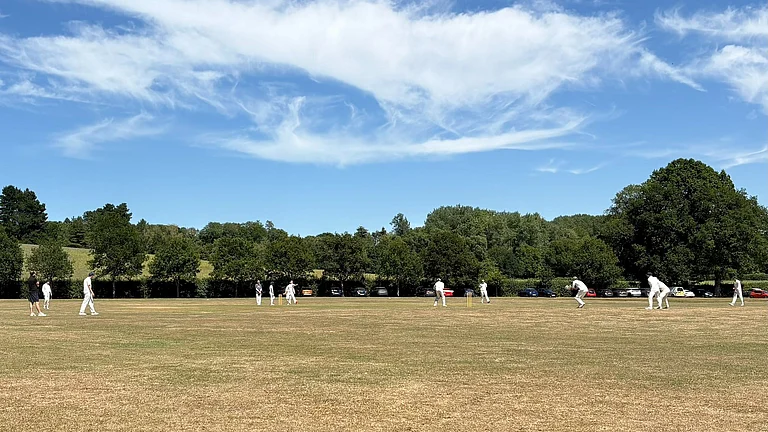Ahead of the WTO's 12th ministerial conference in Geneva, the Swadeshi Jagran Manch (SJM) on Sunday asked the global body's chief Ngozi Okonjo-Iweala to protect the interest of India and other developing countries. In a letter to Okonjo-Iweala, the RSS affiliate urged her to ensure Trade-Related Aspects of Intellectual Property Rights (TRIPS) waiver is extended to medicines, therapeutics, diagnostic, disposables and all types of equipment along with vaccines used in Covid treatment, saying people in different parts of the world are still struggling for equitable access of these. It also urged the World Trade Organization (WTO) chief to ensure that the meeting arrives at a permanent solution to the issue of public stock holding of grains for food security programmes.
While the world saw the importance of public stockholdings for food security in the last two years of COVID-19 pandemic, poor countries are still in dire need of affordable food for the survival of their population, the SJM said. With the member countries negotiating a fishery subsidies agreement to eliminate subsidies for illegal, unreported and unregulated fishing as well as curbing subsidies for overfished stocks, the SJM urged the WTO chief to ensure that the interest of India's small fishermen and fishing activities in the country is safeguarded. The RSS body also called upon the WTO director-general to ensure that the moratorium on custom duty on electronic transmission, which has been continuing since 1998, comes to an end with the conclusion of the 12th ministerial meet. "Through your esteemed office, we would like to draw the attention of the ministers of the member countries of the WTO towards four important issues which carry special importance for people of least developed countries and developing countries," the SJM stated in the letter, shared by its co-convenor Ashwani Mahajan.
These issues include demands for ending a moratorium on custom duty on electronic transmission; TRIPS agreement waiver on vaccine, medicines, therapeutics and related technologies for the treatment of COVID-19; permanent solution to the peace clause in agreement on agriculture on public stockholding for food security and fisheries subsidies. A delegation of the SJM led by its co-convenor Mahajan is in Geneva where the 12th ministerial conference of the WTO is scheduled to begin Sunday. Flagging the issue of the TRIPS agreement waiver proposed for vaccines, medicines and consumables for Covid treatment, the RSS body said though the countries have agreed to text-based negotiations for this, the text circulated is far from being useful for the purpose enshrined in the proposal made by India in 2020.
"It is unfortunate that the proposal on the table is limited to TRIPS waiver for vaccine only and that too, limited to import and exports of the vaccine and that also with technicalities purposely designed to deny the implementation of TRIPS waiver even for vaccines," the SJM said."We fail to understand why the text in circulation puts so many conditionalities," it said, adding "Proposal to destroy the vaccines produced on expiry of the term of the waiver is a cruel joke on humanity."
On food security and farmers' survival, the SJM said a good number of years have passed since the first proposal for a permanent solution came from India and other countries of G-33, "which essentially demanded moving public stockholding for food security into the Green Box". "We call upon you to use your good offices to ensure an agreement which doesn’t come in way of food security for billions of people and also undo the historical wrongs in terms of classification of subsidies," the RSS body said in its letter to the WTO chief. On fisheries subsidies, the SJM said there are differences between the WTO member states on many key issues, including the definition of harmful subsidies and that of illegal, unreported and unregulated fishing."We strongly oppose the developed countries' suggestion for an exemption for low-income, resource-poor or livelihood fishing or fishing-related activities in developing countries operating within 12 nautical miles, with a limit of five years for fishing in the EEZ," it said.
The SJM said while there should not be any restriction on giving support to the small fishermen, there is an "urgent need" to restrict organised deep-sea fishing by big corporates on the other hand to safeguard the environment. Pitching for ending the moratorium on custom duty on electronic transmission, the SJM said the provision which is continuing since 1998 is against the interest of developing countries in general and India in particular."This is not only impacting job creation in the electronic sector but also revenue generation," it said. Imposition of tariff on electronic transmission will be the first condition for success in a fourth industrial revolution, which will come through digital industrialisation in developing countries, it said. The surging trend in the digitisation of a greater number of products, especially the increasing percentage of 3D printing of manufactured goods is showing further losses of tariff revenue, the SJM added.
(With PTI Inputs)






_1642181294.jpg?w=801&auto=format%2Ccompress&fit=max&format=webp&dpr=1.0)



















